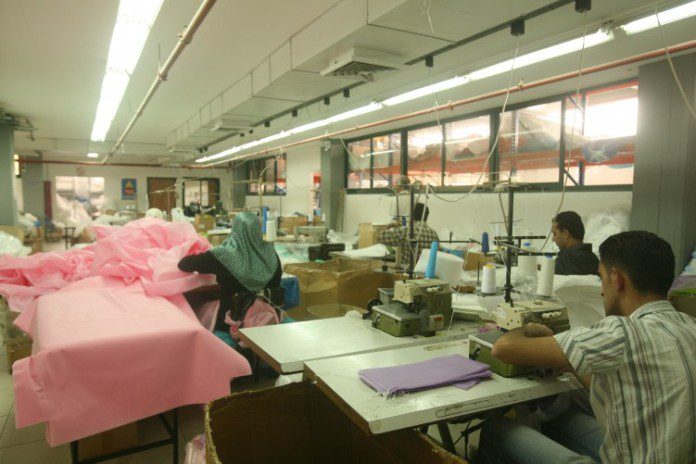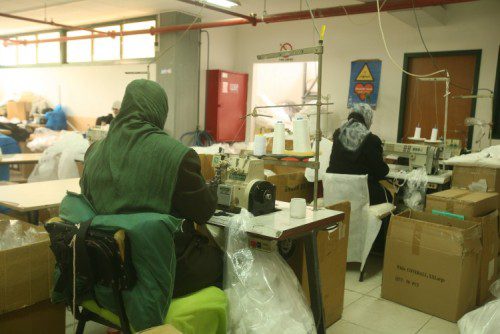

EU Labeling Will Hurt Palestinians According to New Data
Following the European Union’s decision to label products from Israeli factories in Judea and Samaria, new data released by the Council of Judea and Samaria’s Research Department reveals the significant advantages these factories hold for the many Palestinians they employ, and for the Palestinian economy in general.
Fourteen Israeli industrial areas currently exist throughout Judea, Samaria and the Jordan Valley, and hold approximately 890 factories.
These factories employ about 24,000 workers, most of whom are Palestinians. Around 15,300 Palestinians are employed in the factories, which entails 62% of all employees.
On average, these Palestinian employees earn more than double the average salary earned in the Palestinian economy.
This means that thanks to Israeli factories, more than 15,000 Palestinian workers earn high salaries and provide for over 100,000 residents of the Palestinian territories.
“If the EU labeling causes damage to the factories, the first to be hurt will be the Palestinian employees, who will be fired because of the decrease in production,” Yigal Dilmoni, deputy head of the Council of Judea and Samaria told Tazpit Press Service (TPS).
Despite boycott initiatives and attempts, between 2011 and 2015 the number of factories in Judea and Samaria increased from 680 to 890, an increase of almost 30%. Similarly, the number of Palestinians employed in these factories significantly increased as well by 25%, from 12,300 in 2011 to 15,300 in 2015.
This data indicates a direct and significant correlation between the increase in the number of factories, and the increase in the number of Palestinians employed in the Israeli industry. In other words, as the Israeli industry in Judea and Samaria grows and develops, more high-paying jobs are created for Palestinians.


Photos by: Tsachi Miri/TPS. for use outside of Israel only.
“Assuming this trend of growth in the number of factories and employees continues, this will strengthen the region’s economy in the long run, promote coexistence and continue to be a source of well-being for all residents of the region,” read a statement by the Council of Judea and Samaria.
“Strengthening the industry and agriculture in Judea and Samaria is an important strategic challenge for promoting economic peace and coexistence, which is vital for the region’s future,” the statement continued.
“The EU decision is discriminatory since they don’t do this to any other country except Israel, even though there are conflicts in many other countries too,” concluded Yigal Dilmoni to TPS.
“European countries who endorse the decision simply prove that they can’t be trusted by Israel, and that they can’t be fair mediators between Israel and the Palestinians.”





